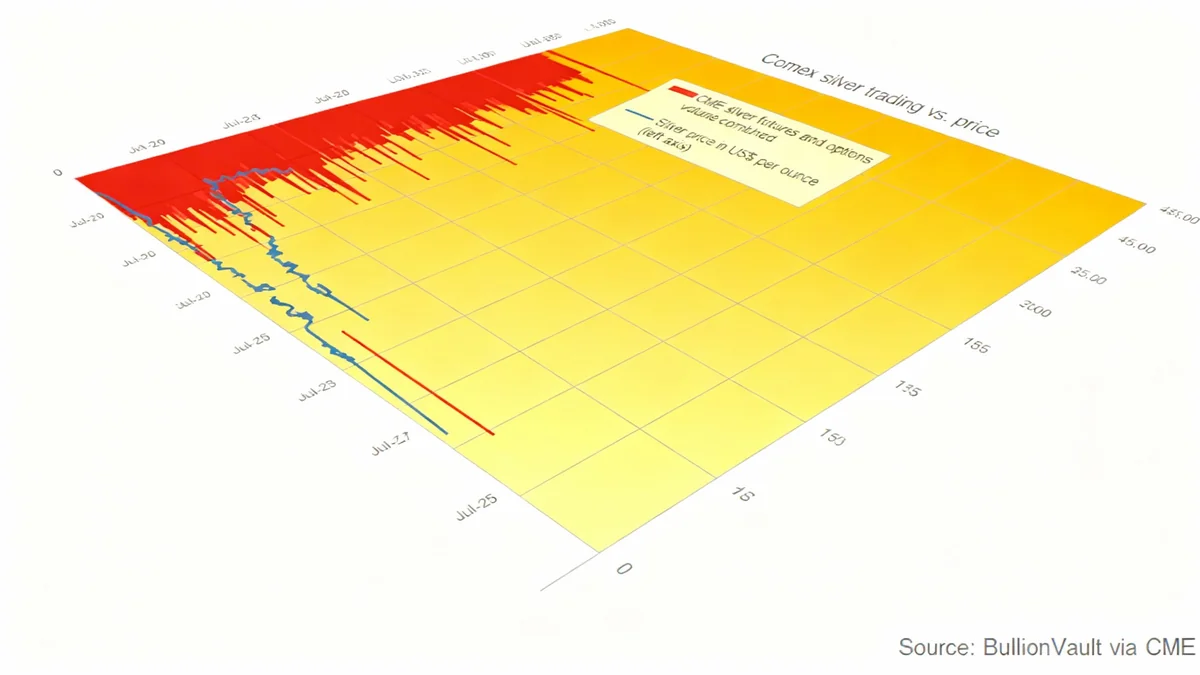Roundhill Investments is reintroducing its Meme Stock ETF, which was previously closed in 2023, signaling a renewed confidence in the retail investor market. The revived fund, trading under the ticker MEME, features a significant change in strategy, shifting from a passive index-tracking model to an actively managed approach designed to adapt to fast-moving market trends.
The firm believes that current market conditions, characterized by increased speculative trading and a more favorable regulatory environment, create a viable opportunity for the ETF's return. The new fund aims to capture the volatility and social media-driven momentum that define meme stocks.
Key Takeaways
- Roundhill Investments has relaunched its Meme Stock ETF (MEME), which originally shut down in 2023.
- The new version is actively managed, a major shift from its previous passive, index-based strategy.
- The fund will hold a concentrated portfolio of approximately 24 stocks and will be rebalanced at least weekly.
- Selection criteria include high price volatility and strong retail investor sentiment gathered from online forums and trading data.
- The relaunch reflects a belief that speculative interest from retail traders remains a powerful market force.
A Second Chance in a Speculative Market
Breaking into the highly competitive $13 trillion U.S. exchange-traded fund market is a significant challenge, and staging a comeback is even more difficult. Roundhill Investments is undertaking this challenge by reviving its pandemic-era Meme Stock ETF. The original fund was discontinued in 2023 after failing to gain significant assets, closing with just under $3 million.
However, the landscape has evolved since then. Speculative trading among retail investors has persisted, and the market has seen a proliferation of products catering to high-risk appetites, such as leveraged and inverse single-stock ETFs. It is within this environment that Roundhill hopes the second iteration of MEME will find success.
"In some ways, ‘meme’ is still perceived as a dirty word. Many still scoff at what the retail community does on various forums. But that’s an entirely antiquated view," said Dave Mazza, Roundhill’s chief executive officer. He added, "What didn’t fade is the influence of retail in today’s equity market."
The Rise of Meme Stocks
The term "meme stock" gained widespread recognition in 2021 when groups of retail traders, often coordinating on social media platforms like Reddit, initiated massive short squeezes on heavily shorted stocks. Companies like GameStop Corp. and AMC Entertainment Holdings Inc. experienced extraordinary price surges, demonstrating the collective power of individual investors.
The phenomenon prompted asset managers to create products to capitalize on this trend. Alongside Roundhill's original MEME ETF, funds like the VanEck Social Sentiment ETF (BUZZ) were launched to track stocks with high levels of positive online discussion. The revival of MEME suggests that issuers believe this market segment has lasting power.
How the New MEME ETF Differs From the Original
The relaunched MEME ETF is not simply a repeat of the original. The most significant change is the shift to an actively managed portfolio. While the first version passively tracked an index of meme stocks, the new fund gives its managers the discretion to select stocks they believe fit the criteria.
This new structure is designed to be more nimble and responsive to the rapid shifts in retail investor focus. The key features of the new MEME ETF include:
- Concentrated Portfolio: The fund will hold a tight basket of roughly two dozen stocks, allowing for more targeted exposure.
- Frequent Rebalancing: To keep up with the fast-paced nature of meme stocks, the portfolio will be rebalanced at least once a week.
- Dynamic Selection: Managers will analyze a variety of inputs beyond just quantitative data to identify potential holdings.
The ETF carries an expense ratio of 69 basis points, or 0.69%. At its launch, the fund's top holdings included Opendoor Technologies Inc., Plug Power Inc., and Applied Digital Corp., indicating a focus beyond the original 2021 meme stock leaders.
"The comeback of MEME ETF isn’t so much about the fund itself, but more an indicator of where we are in the cycle with signs that speculation is creeping back into markets and investors are willing to chase risk again," said Athanasios Psarofagis, an ETF analyst at Bloomberg Intelligence.
Identifying the Next Wave of Meme Stocks
The success of the actively managed MEME ETF will depend on its ability to effectively identify and capitalize on the next viral stock craze. According to Roundhill's CEO, Dave Mazza, the firm will use a comprehensive approach to stock selection that combines quantitative signals with qualitative sentiment analysis.
This strategy involves actively monitoring online communities and data sources where retail traders congregate. The process includes parsing conversations on subreddits, tracking retail versus institutional trading flows, and staying attuned to the digital chatter that often precedes dramatic price movements in certain stocks.
This blend of traditional financial analysis and modern digital ethnography represents a hybrid approach. Roundhill is betting that by combining Wall Street methodology with an understanding of online culture, it can successfully navigate the volatile meme stock landscape.
MEME 2.0: Key Details
- Management Style: Active
- Number of Holdings: Approximately 24
- Rebalancing Frequency: At least weekly
- Expense Ratio: 0.69%
This active management is a crucial distinction. The original fund's passive nature meant it could be slow to react to new trends. The new structure allows managers to add or remove stocks quickly, a necessary feature in a market segment where a company's popularity can surge and fade within days.
Market Context and Future Outlook
The relaunch of the MEME ETF occurs as market speculation appears to be on the rise. With major indices reaching new highs, some investors are showing a greater appetite for risk. This environment could be beneficial for a product focused on high-volatility stocks.
Nate Geraci, president at NovaDius Wealth Management, commented on the current market sentiment. "Retail investors are once again partying like it’s 2021. There’s currently an insatiable appetite for risk," he said. This suggests a potential audience for the ETF, but success is not guaranteed.
Geraci noted the challenge the fund faces in a crowded market. "For this MEME ETF to achieve success, it will likely need its own viral moment," he explained. Gaining traction will require not only sound management but also capturing the attention of the very community it targets.
Athanasios Psarofagis of Bloomberg Intelligence believes Roundhill may have learned from its first attempt. "It may be a challenge for the ETF, but I think they learned their lesson the first time," he stated, referring to the difficulties in gathering assets. The shift to an active strategy may be the key lesson, offering the flexibility needed to stay relevant in the ever-changing world of retail-driven stock trading.





